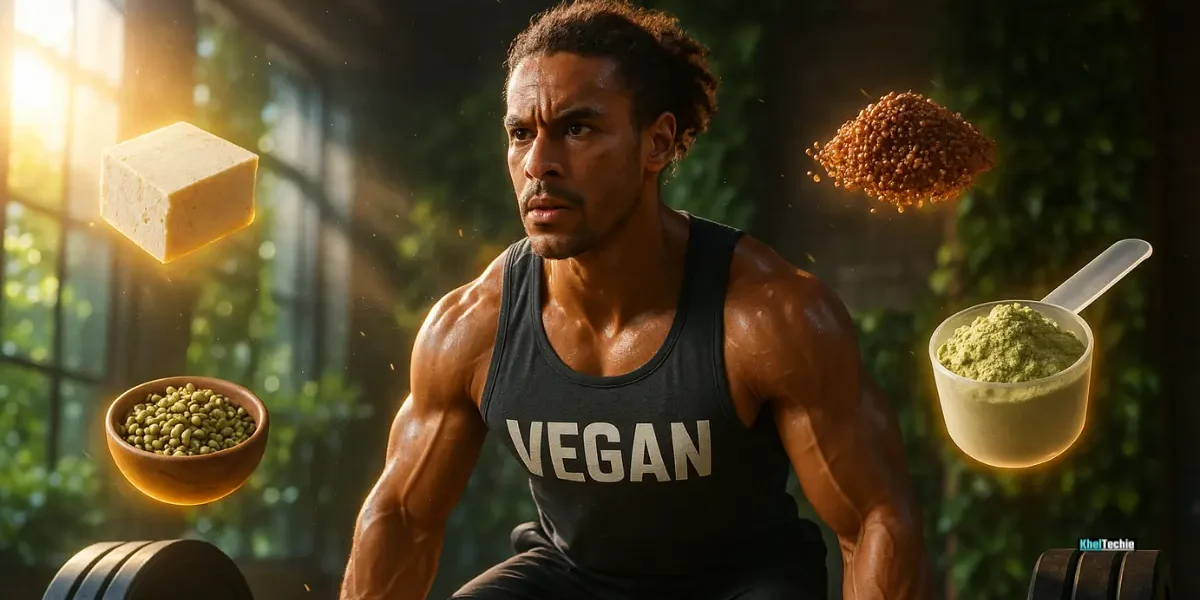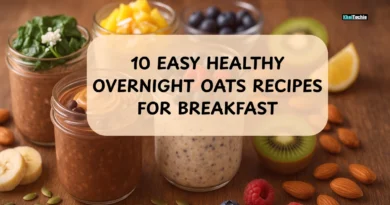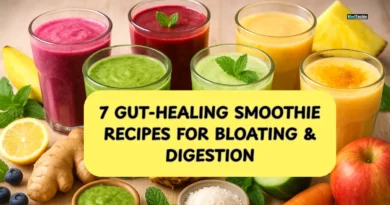Best Vegan Protein Sources for Athletes: Build Muscle Without Meat
Why Vegan Athletes Need the Right Protein Strategy
If you’re an athlete considering or already living a vegan lifestyle, one question probably keeps coming up, Where do you get your protein? It’s not just curiosity, it’s skepticism from people who still believe animal products are the only way to build muscle and boost performance.
But here’s the truth, plant-based athletes can absolutely meet their protein needs, and many are doing it successfully, pro bodybuilders, ultra-marathoners, MMA fighters, and Olympians included.
In this article, we’ll explore the best vegan protein sources for athletes, how to optimize intake for muscle recovery and growth, and why going vegan might actually give you an edge. Whether you’re new to the game or looking to fine-tune your nutrition, this guide has everything you need to thrive.
Also read – Best Plant-Based Protein Sources
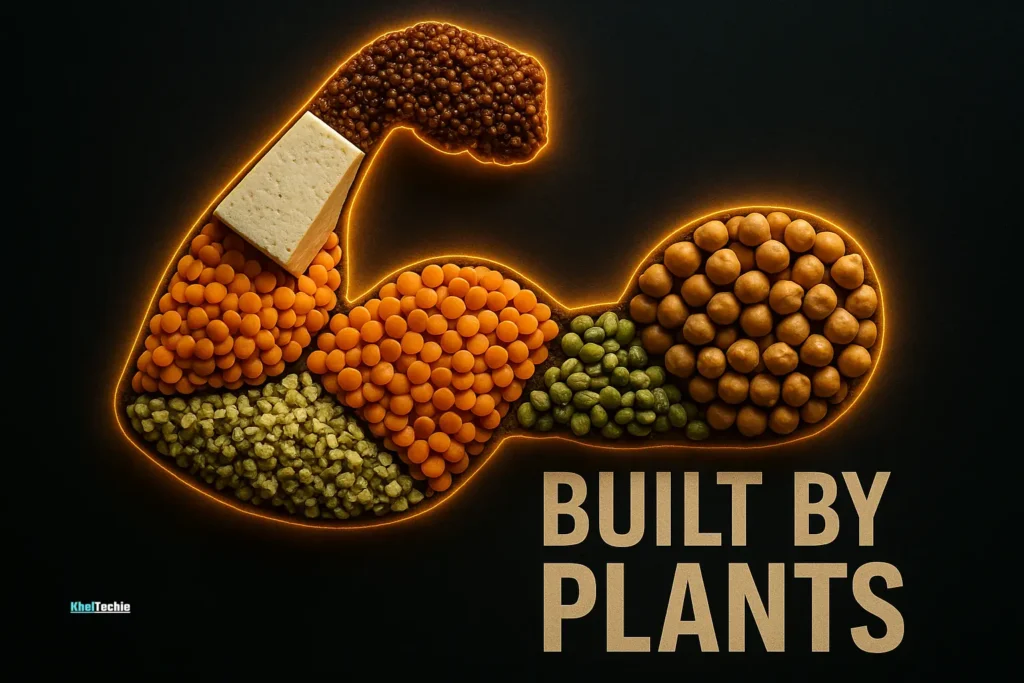
What Are Vegan Protein Sources for Athletes?
Imagine protein sources as Lego bricks, you need the right ones (essential amino acids) to build muscle. Animal proteins give a complete kit, vegan sources offer individual bricks. The trick here is to eat a variety throughout the day or use complete plant proteins to build robust structures.
- Complete plant proteins: soy, quinoa, buckwheat, hemp seeds, chia.
- Complementary combos: grains + legumes, think, rice + beans, corn + peas.
- Easily digestible isolates: pea+rice protein blends, soy protein isolate.
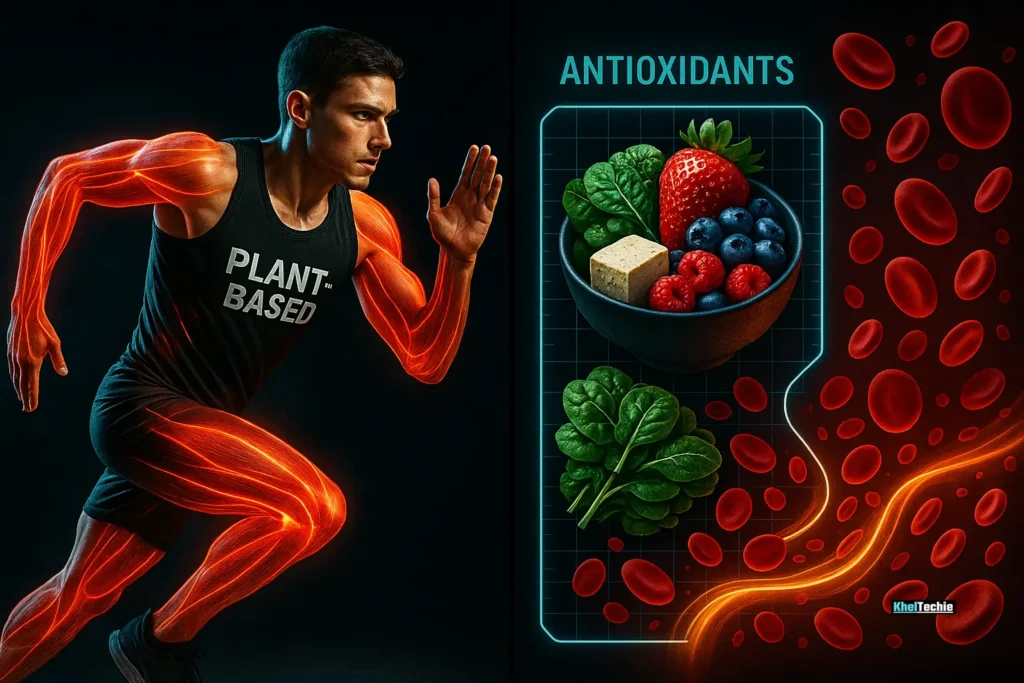
Why Vegan Protein Matters for Athletic Performance
If you’re a vegan athlete wondering whether plants can fuel your performance, the latest research says yes very loud and clear.
According to a 2025 University of Illinois study, vegan protein from complete meals like lentils and rice can build muscle just as effectively as meat. That means with smart food pairing, you’re not missing out on gains. Your muscles get the full amino acid package they need to recover, grow, and stay strong.
According to a 2024 review from ACS Omega, vegan diets don’t just hold up, they may give you an edge. Thanks to antioxidant-rich foods and heart-healthy nutrients, vegan athletes often enjoy better blood flow and enhanced endurance. More oxygen to your muscles means better workouts and faster recovery.
So, whether you’re hitting the gym or training for a marathon, a well-balanced vegan diet can go toe-to-toe with any meat-heavy meal plan. The secret? Variety, balance, and whole foods.
Plant-based protein isn’t just good for animals or the planet, it’s great for your performance. Backed by science, it’s more than just a trend. It’s power, powered by plants.
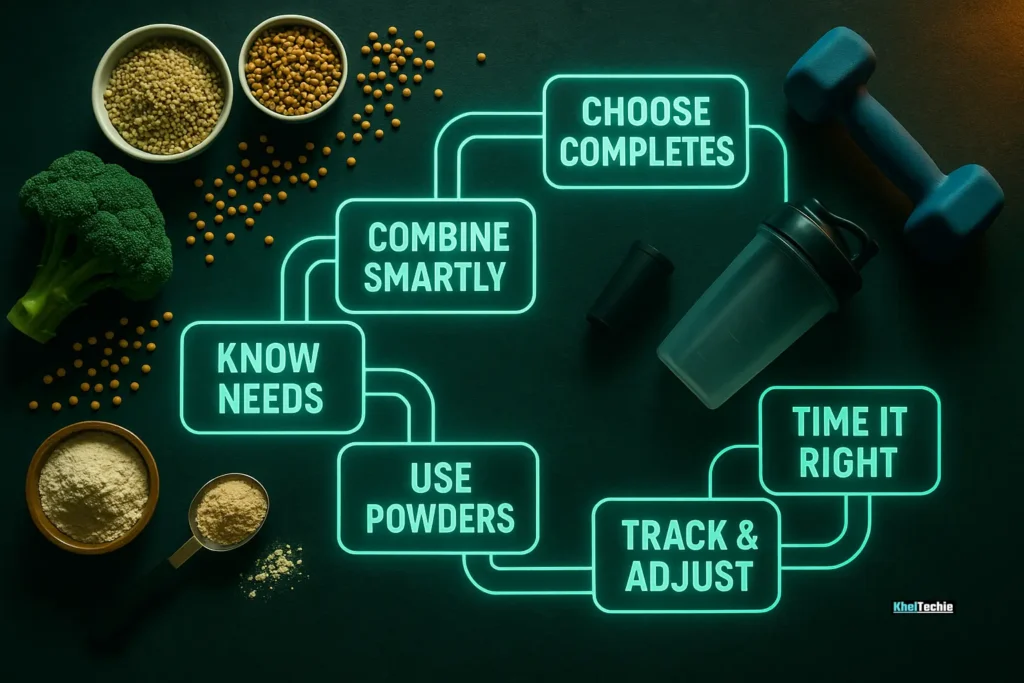
Step-by-Step Guide to Building Your Vegan Athlete Protein Plan
Let’s break down how to effectively incorporate vegan protein into your athletic lifestyle.
Step 1: Know Your Daily Needs
Start by calculating your protein requirements based on your weight and activity level:
| Activity Level | Protein per kg (g) |
|---|---|
| Light Exercise | 1.2 |
| Moderate Training | 1.4–1.6 |
| Intense Training | 1.6–2.0 |
If you weigh 70 kg and train intensely, aim for 112–140 grams of protein daily.
Step 2: Choose Complete Proteins
Complete proteins contain all nine essential amino acids. Some top vegan complete proteins include:
- Quinoa
- Buckwheat
- Hemp seeds
- Soy products (tofu, tempeh, edamame)
- Spirulina
Step 3: Combine Incomplete Proteins Smartly
Some plant proteins are low in certain amino acids. Pair them smartly:
- Beans + Rice = Complete amino acid profile
- Hummus + Whole Grain Bread
- Peanut Butter + Oats
This strategy ensures you’re getting all necessary building blocks for muscle repair.
Step 4: Use Vegan Protein Powders
When whole food isn’t enough or convenient, reach for vegan protein shakes. Look for blends containing:
- Pea protein
- Brown rice protein
- Pumpkin seed protein
- Hemp protein
Top brands include Orgain, Vega, Garden of Life, and Sunwarrior.
Step 5: Time Your Intake
Protein timing matters. Aim for:
- Pre-workout: 10–15g protein 1 hour before training
- Post-workout: 20–30g protein within 30 minutes after
- Throughout the day: Spread protein across meals/snacks every 3–4 hours
Step 6: Track Progress & Adjust
Use apps like MyFitnessPal or Cronometer to log your intake and tweak portions based on results. Pay attention to energy levels, recovery time, and muscle gains.
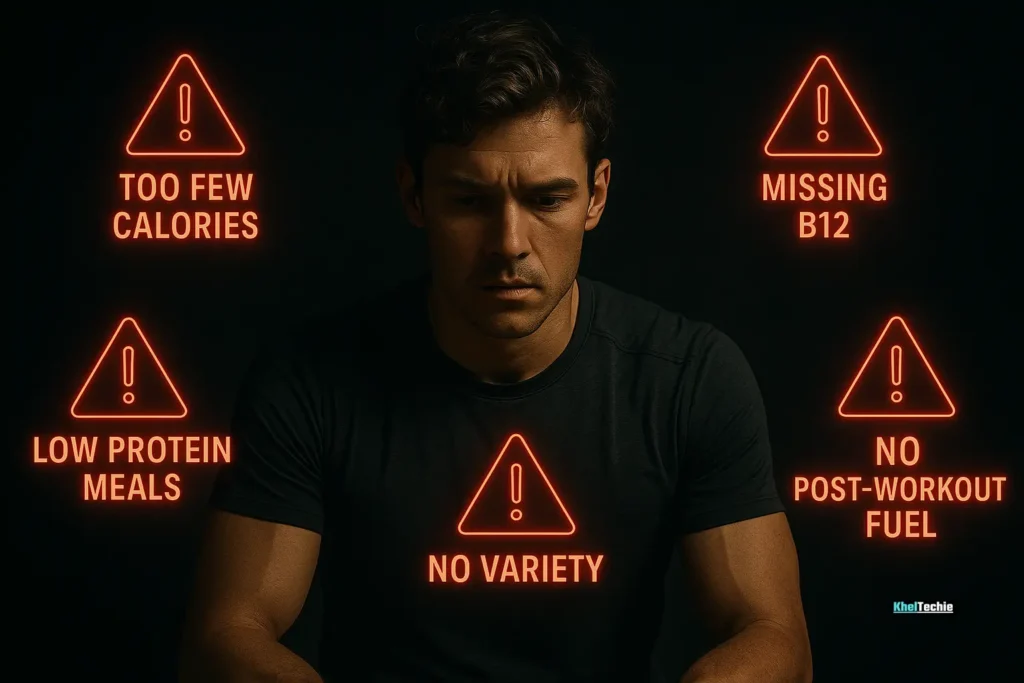
Common Mistakes Vegan Athletes Make With Protein
Even the most dedicated vegan athletes can slip up. Here are the most common pitfalls and how to avoid them:
❌ Relying Only on Low-Protein Foods
Eating mostly vegetables and fruits won’t cut it. You need concentrated protein sources like legumes, seitan, and tofu.
❌ Skipping Post-Workout Nutrition
Missing the post-exercise window means slower recovery and weaker gains. Always prioritize protein and carbs after workouts.
❌ Not Varying Protein Sources
Sticking to the same few foods can lead to nutrient gaps. Rotate your sources for balanced amino acid intake.
❌ Overlooking B12 and Iron
While not directly related to protein, these nutrients impact energy and oxygen delivery. Supplement if needed and eat fortified foods.
❌ Underestimating Calories
Plant-based diets are often less calorie-dense. Eat enough to support training demands.
Top 10 Vegan Protein Sources for Athletes
| Food | Protein per 100g | Benefits |
|---|---|---|
| Lentils | 9g | Rich in fiber, iron, and folate |
| Chickpeas | 7.3g | Versatile, great for salads and hummus |
| Tofu | 8g | High in calcium and iron |
| Tempeh | 19g | Fermented, probiotic-rich |
| Quinoa | 4.4g | Complete protein, gluten-free |
| Pea Protein Powder | ~20g/scoop | Easily digestible, hypoallergenic |
| Seitan | ~25g/3oz | Meat-like texture, high in protein |
| Hemp Seeds | 31g | Contains omega-3s and magnesium |
| Edamame | 11g | Packed with antioxidants |
| Black Beans | 8.9g | Great for fiber and slow-digesting carbs |
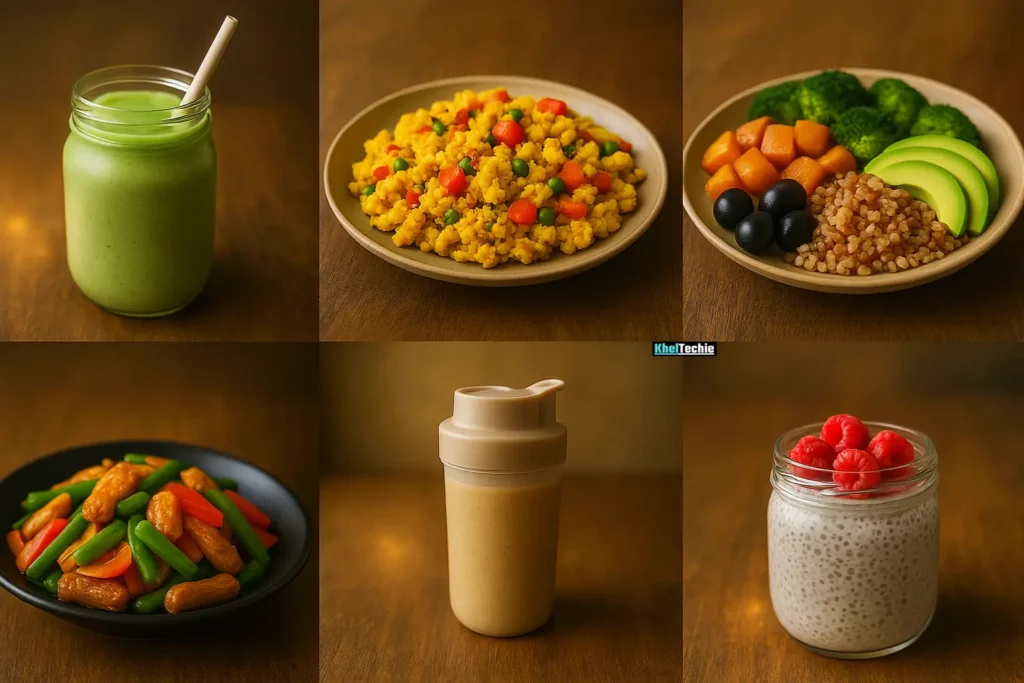
Vegan Athlete Meal Plan (High-Protein)
1) Breakfast:
- Scrambled tofu with spinach, avocado toast, and hemp seeds
- Green smoothie with pea protein, banana, oats, and almond milk
2) Snack:
- Trail mix with almonds, pumpkin seeds, and dried cranberries
3) Lunch:
- Quinoa bowl with roasted chickpeas, kale, sweet potato, tahini dressing
- Side of lentil soup
4) Pre-Workout Snack:
- Banana with peanut butter
- Small handful of walnuts
5) Post-Workout Shake:
- Vegan protein powder blended with frozen berries, flaxseed, and oat milk
6) Dinner:
- Tempeh stir-fry with broccoli, bell peppers, and brown rice
- Miso soup with edamame
7) Evening Snack:
- Chia pudding with plant yogurt and blueberries
Rotate whole foods and powders. Add nutritional yeast, nut butters, and legumes across meals.
Latest Trends in Vegan Sports Nutrition (2025)
- Pea-rice protein blends are dominating the market due to their amino acid completeness and digestibility.
- Algae-based proteins are emerging as sustainable alternatives with high bioavailability.
- Fermented plant proteins are gaining traction for better gut health and absorption.
- Personalized nutrition plans using AI tools are helping athletes tailor macros to individual goals.
Also read – Vegetarian Keto Meal Plan for Beginners
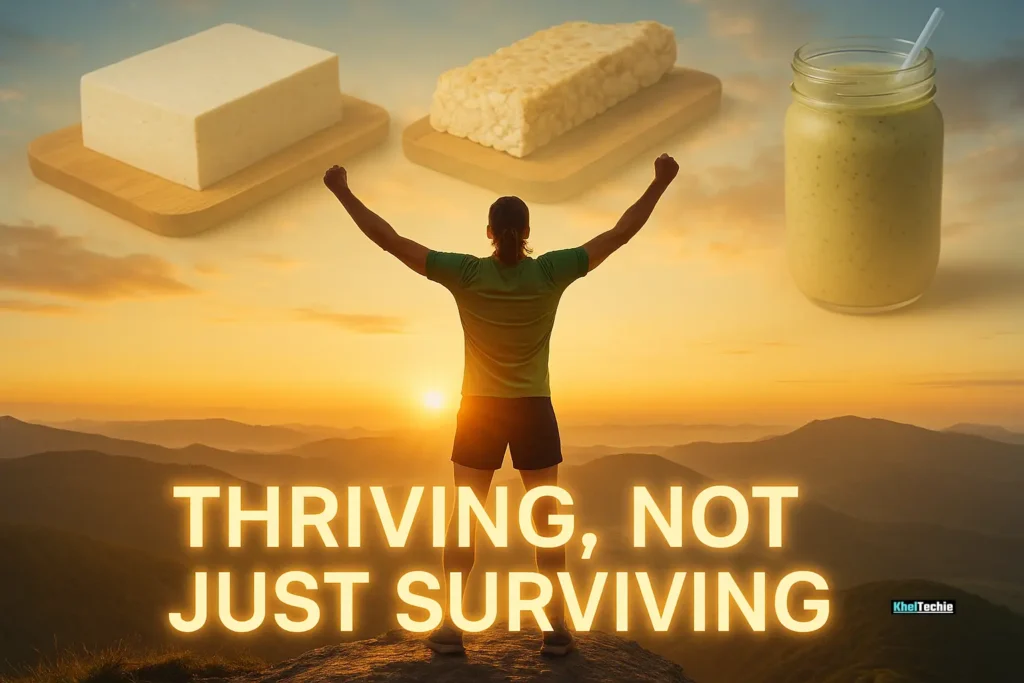
Final Thoughts: Thriving as a Vegan Athlete
Going vegan doesn’t mean sacrificing performance. In fact, many athletes find improved recovery, reduced inflammation, and sustained energy once they master their plant-based nutrition. By incorporating a variety of high-quality vegan protein sources, timing your intake correctly and staying consistent, you can achieve your athletic goals while staying true to your values.
Have Questions or Tips to Share? Drop them in the comments below! Let’s build a community of strong, informed, and empowered vegan athletes together. Don’t forget to share this article with someone who needs a little plant-powered inspiration.
Note: Always consult with a healthcare professional before making significant changes to your diet or starting new supplements.
FAQs
Can I Build Muscle on a Vegan Diet?
Yes! As long as you consume sufficient calories and protein, especially leucine-rich sources like soy, peas, and pumpkin seeds, muscle growth is achievable.
How much protein do vegan athletes need daily?
For endurance training, 1.2–1.6 g/kg; for strength training, up to 2.0 g/kg.
Do Vegan Athletes Need Supplements?
Not always, but some may benefit from B12, vitamin D, creatine, and omega-3s (from algae oil). Protein powders can help meet daily targets.
Is Tofu Good for Athletes?
Absolutely, Tofu is high in protein, calcium, and iron plus, it absorbs flavors well, making it easy to add variety to meals.
Can Legumes Replace Animal Protein?
Legumes like lentils, chickpeas, and black beans are excellent protein sources. Combine them with grains to make complete proteins.
What Are the Best Vegan Protein Snacks?
Try these high-protein snacks:
Chia pudding with plant milk
Roasted chickpeas
Edamame pods
Vegan protein bars
Nut butter with apple slices
Are Vegan Protein Shakes Effective?
Yes, Most plant-based protein powders provide 15–30g of protein per serving and are ideal for post-workout recovery.
How Do Vegan Endurance Athletes Meet Protein Needs?
Endurance athletes should focus on complex carbs with moderate protein. Include smoothies, grain bowls, and legume-based soups throughout the day.
Can You Get Too Much Protein on a Vegan Diet?
Excess protein can strain kidneys over time. Stick to recommended ranges unless advised otherwise by a healthcare professional.
How do I hit protein goals while traveling?
Plan ahead. Use tofu/tempeh, legumes, vegan meats, or protein bars when whole-food options are limited.
What are signs I’m not getting enough protein?
Fatigue, delayed recovery, weakening strength, stalled gains, or frequent illness.

